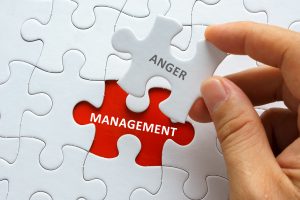By – James M. Katz, BA
Anger is a powerful emotion that can significantly impact various aspects of life. When left unchecked, it can strain relationships, hinder professional growth, and take a toll on mental and physical health. Anger Management Consulting has emerged as a valuable resource for individuals seeking to gain control over their emotions and improve their overall quality of life.
Anger Management Consulting offers a range of tools and techniques to help people understand the root causes of their anger and develop effective coping strategies. Through professional guidance, individuals can learn how to control their anger, enhance their communication skills, and resolve conflicts more constructively. This article explores the transformative power of anger management, discussing key principles, practical techniques, and the benefits of working with a skilled consultant to create a personalized action plan for lasting change. This article explores the roots of anger, how to manage it, and the benefits of seeking help.
Key Takeaways
- Understanding what triggers your anger can help you manage it better.
- Stress can play a big role in making you feel angry.
- There are many techniques, like therapy and mindfulness, that can help you control your anger.
- Anger management classes can provide support and teach you knew skills.
- Knowing when to seek professional help is important for your well-being.
Understanding the Root Causes of Anger
To effectively manage anger, it is crucial to understand its underlying causes. Anger is often a reaction to other emotions or experiences, and identifying these triggers can be the first step towards better control. This section explores the various factors that contribute to anger, including specific triggers, childhood experiences, and current life stressors.
Identifying Anger Triggers
Anger triggers are unique to each individual and can vary widely based on personal experiences. These triggers are essentially anything that elicits feelings of anger within a person. By recognizing these “buttons” that push someone towards anger, it becomes easier to manage the emotion effectively.
Common anger triggers include:
1. Feeling wronged or mistreated
2. Believing that nobody is listening
3. Getting blamed for things one is not responsible for
4. Feeling insecure or unsafe
5. Receiving threats or insults
6. Being falsely accused
7. Being ignored or interrupted
8. Being lied to
When triggered, individuals often experience both emotional and physiological responses. Emotionally, the primal sectors of the brain responsible for controlling reasoning give way to the prefrontal cortex, leading to a desire for the situation to stop. Physiologically, there’s an increase in respiratory and heart rates, muscle tension, and sometimes tunnel vision.
To help identify personal triggers, individuals can reflect on past instances of anger and analyze what happened just before the emotion arose. For those who struggle to identify their emotions, visual aids like the Anger Gram can be useful. This tool uses a visual map of events and feelings that trigger anger, with their placement around a body image indicating the strength of each trigger.
Exploring Childhood Experiences
Childhood experiences play a significant role in shaping adult anger responses. Research presented at the European Congress of Psychiatry in Paris revealed that people with depression and anxiety who experienced traumatic childhoods are more likely to become angry adults.
The study found that all types of childhood trauma, except for sexual abuse, were associated with higher levels of anger, a higher prevalence of anger attacks, and antisocial personality traits in adulthood, independent of depression and anxiety. Specifically, anxious or depressed individuals with a history of emotional neglect, physical, or psychological abuse were 1.3 to 2 times more likely.
Different types of childhood trauma can lead to varying anger responses in adulthood:
• Emotional neglect: Increased tendency towards irritability or being easily angered
• Physical abuse: Greater tendency towards anger attacks or antisocial personality traits
• Sexual abuse: Tendency to suppress anger, possibly due to a greater sensitivity to rejection
It’s important to note that the more traumatic the childhood experience, the greater the tendency towards adult anger. This connection between childhood trauma and adult anger often stems from situations where an individual’s power was taken away or they were not allowed to express their feelings or needs.
Examining Current Life Stressors
Current life stressors play a significant role in triggering and exacerbating anger. Stress can create a variety of problems, and for those prone to anger, it can increase angry behaviors. The relationship between stress and anger is complex and often cyclical.
Stress affects anger in several ways:
1. Cognitive impact: Stress alters cognitive processing and perception, making individuals more likely to interpret situations as threatening or frustrating.
2. Emotional regulation: Stress compromises the ability to regulate emotions due to the heightened state of arousal it causes.
3. Physiological response: The body’s stress response, involving the release of hormones like adrenaline and cortisol, creates a state of physiological arousal similar to the preparation for aggressive behaviors.
4. Stress-anger cycle: Stress can trigger an anger response, which in turn produces further stress, creating a self-perpetuating cycle.
It’s important to recognize that stressful situations vary from person to person. What one individual find stressful may not affect another in the same way. Often, people feel stressed when they don’t know how to handle a specific situation, which can lead to expressing frustration through anger, lashing out at others, or developing temper tantrums.
Understanding these root causes of anger – triggers, childhood experiences, and current stressors – is essential for developing effective anger management strategies. By identifying personal triggers, addressing past traumas, and learning to manage stress, individuals can take significant steps towards better controlling their anger and improving their overall quality of life.
The Physical and Emotional Toll of Uncontrolled Anger
Uncontrolled anger can have far-reaching consequences, affecting various aspects of an individual’s life. From health issues to strained relationships and career setbacks, the impact of mismanaged anger can be profound and long-lasting.
Health Consequences
Anger triggers the body’s ‘fight or flight’ response, leading to a flood of stress hormones like adrenaline and cortisol. This physiological reaction causes immediate changes in the body, including increased heart rate, blood pressure, and respiration. While these responses can be beneficial in short-term stressful situations, chronic anger can lead to serious health problems.
The constant flood of stress chemicals and associated metabolic changes that accompany ongoing unmanaged anger can eventually cause harm to many different systems of the body. Some of the short and long-term health problems linked to unmanaged anger include:
1. Headaches
2. Digestive problems, such as abdominal pain
3. Insomnia
4. Increased anxiety
5. Depression
6. High blood pressure
7. Skin problems, such as eczema
8. Heart attack
9. Stroke
Research has shown that anger is specifically linked to a higher risk of heart attacks. For individuals with arrhythmias (irregular heartbeats), anger can have particularly detrimental effects. Additionally, when anger is repressed or expressed inappropriately, it can manifest physically within the body, leading to chronic pain and other unexplainable physical symptoms.
Relationship Impacts
Uncontrolled anger can have devastating effects on personal relationships. As social creatures, humans need strong social connections to thrive. However, anger can set the stage for nasty verbal rants or even violent behavior, causing irreparable damage to relationships.
The negative consequences of expressing anger inappropriately in relationships can include:
1. Building resentment and walls between partners
2. Forcing couples to drift apart
3. Leading to infidelity, distrust, separation, or divorce
4. Creating a bad example for children in the household
5. Perpetuating cycles of anger
6. Creating feelings of danger
7. Resulting in verbal, emotional, or physical abuse
In extreme cases, anger explosions can lead to physical abuse or violence. People who struggle to control their temper may isolate themselves from family and friends, further exacerbating the problem. Some individuals with low self-esteem may use their anger as a way to manipulate others and feel powerful, which can be particularly damaging in relationships.
 Career Implications
Career Implications
While some studies suggest that anger can occasionally be beneficial in the workplace, recent research indicates that expressing anger at work often leads to negative outcomes. Contrary to the belief that anger expressions can help gain status, workers who express anger are often penalized rather than rewarded.
Key findings regarding anger in the workplace include:
1. Workers who express anger are judged as less competent.
2. Anger expressions are perceived as inappropriate, cold, an overreaction, and counter-instrumental for workplace goals.
3. Angry workers are conferred less status relative to sad and emotionless workers.
4. Participants perceive angry workers as less warm than sad and emotionless workers.
5. Anger expressions are viewed as significantly more inappropriate and more of an overreaction than sadness expressions.
These findings suggest that uncontrolled anger can have serious implications for career advancement and workplace relationships. Mismanaged anger can lead to impulsive choices, ending professional relationships over minor issues, and creating a negative work environment.
In conclusion, the physical and emotional toll of uncontrolled anger is significant and multifaceted. From health issues to damaged relationships and career setbacks, the consequences of mismanaged anger underscore the importance of developing effective anger management strategies.
Key Principles of Anger Management Consulting
Self-Awareness
Self-awareness is a fundamental principle in anger management. It refers to the ability to recognize and understand one’s own emotions, thoughts, and behaviors. This skill is crucial for individuals seeking to control their anger effectively. By developing self-awareness, people can identify what triggers their anger and how it manifests in their body and mind.
Emotional self-awareness is a key component of emotional intelligence. It serves as the foundation for managing emotions, including anger. When individuals become more self-aware, they can recognize the physical signs of anger, such as tension in the neck or increased heart rate. This awareness allows them to pause and reflect before reacting impulsively.
Self-awareness also helps people differentiate between various levels of anger, from mild annoyance to full-blown fury. This distinction is crucial for choosing appropriate responses to different situations. Moreover, self-awareness increases empathy and compassion towards others, reducing the likelihood of misinterpreting others’ actions as provocative.
Emotional Regulation
Emotional regulation is the process by which individuals influence which emotions they have, when they have them, and how they experience and express these feelings. It is a critical skill in anger management, as it helps people maintain control over their emotional responses.
There are several strategies for emotional regulation:
1. Cognitive reappraisal: This involves changing how one thinks about a situation to alter their emotional response. It is a key component of therapies like Cognitive Behavioral Therapy (CBT) and Dialectical Behavior Therapy (DBT).
2. Creating space: When feeling angry, it’s beneficial to take a step back from the situation. This pause allows time for the body’s physiological response to calm down, which can take up to 20 minutes.
3. Mindfulness: Practicing mindfulness helps individuals stay present and aware of their emotions without judgment. This can prevent anger from escalating and allow for more thoughtful responses.
4. Self-soothing: Engaging in calming activities like deep breathing, meditation, or progressive muscle relaxation can help reduce the intensity of anger.
5. Attentional control: This involves redirecting attention away from anger-inducing stimuli and focusing on more positive aspects of a situation.
Healthy Expression
While anger is a normal emotion, it’s crucial to express it in healthy ways. Healthy expression of anger involves communicating feelings assertively without causing harm or distress to oneself or others.
Key principles for healthy expression of anger include:
1. Assertive communication: This involves expressing oneself clearly and respectfully while considering the feelings of others. It’s about finding a balance between standing up for oneself and respecting others’ perspectives.
2. Using “I” statements: Instead of blaming or accusing others, focus on expressing personal feelings and needs.
3. Taking breaks: If a conversation becomes heated, it’s beneficial to suggest taking a break and returning to the discussion when emotions have settled.
4. Physical outlets: While intense exercise isn’t recommended when angry, gentle physical activities like yoga or walking can help release tension.
5. Seeking support: Talking to a trusted friend, family member, or professional can provide perspective and help in processing anger.
By incorporating these principles of self-awareness, emotional regulation, and healthy expression, individuals can develop more effective anger management skills. These strategies enable people to respond to anger-inducing situations in a controlled and constructive manner, leading to better personal relationships and overall well-being.
Anger Management Techniques and Strategies
Deep Breathing Exercises
Deep breathing exercises are powerful tools for managing anger and promoting relaxation. These techniques work by activating the body’s relaxation response, which can help calm the nervous system and reduce the intensity of anger. One effective method is the 4-7-8 technique, which involves inhaling quietly through the nose for 4 seconds, holding the breath for 7 seconds, and exhaling completely through the mouth for 8 seconds.
Another useful technique is Box Breathing, often used by Navy SEALs to maintain focus under extreme stress. This method involves inhaling for 4 seconds, holding the breath for 4 seconds, exhaling for 4 seconds, and holding the empty breath for 4 seconds. Deep abdominal breathing is also effective, engaging the diaphragm to promote relaxation.
These breathing exercises can be applied in various real-world situations, such as during heated conversations or moments of frustration at work. By incorporating these techniques into daily routines, individuals can develop a quick and portable method to manage anger as it arises.
Progressive Muscle Relaxation
Progressive muscle relaxation (PMR) is an exercise that reduces stress and anxiety by systematically tensing and relaxing different muscle groups. This technique can provide immediate relief and, with practice, help individuals become more aware of tension in their bodies.
To practice PMR, individuals should focus on tensing each muscle group without straining, holding the tension for about 5 seconds, and then releasing it. The process typically starts with the feet and moves upward through the body, including the legs, stomach, chest, back, arms, neck, and face. For example, to relax the feet, one would curl their toes and arch their foot, hold the tension, and then release it, paying attention to the feeling of relaxation. This process is repeated for each muscle group, culminating in tensing the entire body and then releasing all tension.
Cognitive Restructuring
Cognitive restructuring is a technique that focuses on identifying and challenging negative thought patterns associated with anger. This approach is based on the premise that our instinctive thoughts influence our emotions and behaviors. Common cognitive distortions related to anger include all-or-nothing thinking, personalization, catastrophizing, and mind reading. By recognizing these distortions, individuals can work on reframing their thoughts to promote healthier perspectives.
Techniques for implementing cognitive restructuring include:
1. Thought Records: Documenting situations that trigger anger, the associated thoughts, and alternative interpretations.
2. Socratic Questioning: Asking oneself probing questions to challenge irrational beliefs.
3. Positive Affirmations: Using self-affirming statements to counter negative self-talk.
By incorporating these anger management techniques and strategies, individuals can develop more effective ways to respond to anger-provoking situations. Regular practice of deep breathing exercises, progressive muscle relaxation, and cognitive restructuring can lead to improved emotional regulation and overall well-being.
Recognizing When to Seek Professional Help
Signs You Need Additional Support
Sometimes, anger can get out of hand and start affecting your daily life and relationships. If you find that your anger is causing problems at home, work, or school, it might be time to seek help. Feeling constantly irritated or having frequent outbursts are signs that you may need extra support. It’s important to recognize these signs early to prevent further issues.
Types of Professional Help Available
There are different types of professional help available for managing anger. You can talk to a therapist, join anger management classes, or even participate in group therapy sessions. Each option offers unique benefits, and a professional can help you decide which is best for you. Therapy can provide a safe space to explore your feelings and learn new ways to cope with anger.
How to Choose the Right Therapist
Choosing the right therapist is crucial for effective anger management consulting. Look for someone who specializes in anger issues and has experience helping others with similar problems. It’s also important to feel comfortable with your therapist, as this will make it easier to open up and work through your anger. Don’t hesitate to ask questions about their approach and methods to ensure they are a good fit for you.
The Role of Professional Anger Management Consulting
Professional anger management consulting plays a crucial role in helping individuals develop effective strategies to control their emotions and improve their overall well-being. Recognizing when to seek professional help is a critical step in managing anger effectively. It is essential to understand that reaching out for professional assistance is a sign of self-awareness and a proactive approach to mental health.
Benefits of Working with a Consultant
Anger management counseling offers a multitude of advantages for individuals struggling to regulate their emotional responses. Engaging in anger management courses under the guidance of a trained psychologist can lead to a transformative journey towards constructive stress response and emotional well-being. The acquisition of anger management skills through counseling can positively influence various aspects of life, including personal relationships and professional interactions.
Participants often report a sense of relief and improved mental health following each counseling session. The structured environment of counseling provides a safe space to explore underlying causes of anger and to practice new techniques for managing intense emotions. The benefits of anger management consulting are not limited to moments of distress but extend to fostering a more harmonious daily existence.
What to Expect in Sessions
Anger management consulting classes are psychoeducation interventions that focus on helping people learn how to identify anger triggers and manage complicated feelings in a healthy, productive way. While there are many different ways a class might be led, anger management classes aim to teach people the skills they need to regulate their emotions and calm themselves down.
Usually, a trained instructor walks participants through a series of anger management strategies. Then, armed with new strategies participants can work to diminish their aggressive behavior and reduce the anger in their daily lives. The cognitive behavioral approach to anger management involves teaching participants how to recognize the warning signs that their anger is rising. Participants are also taught relaxation strategies, like deep breathing and progressive muscle relaxation, and calming techniques or how to make behavioral changes. They’re also taught how to change the thoughts that fuel their angry feelings, which are the cognitive changes they will make.
Depending on the type of curriculum and the needs of the group, anger management classes may range from eight sessions to 28 sessions. Classes usually take place on a weekly basis and they are usually one to two hours in length. Usually, members are given a workbook with weekly homework assignments. These assignments give participants an opportunity to practice the skills they’ve learned.
Finding the Right Consultant
When seeking professional help for anger management, it’s important to choose the right consultant. If you are looking solely for anger management assistance, choose a mental health provider such as a psychotherapist or psychologist. It’s worth noting that there isn’t an effective medication for anger management.
The pursuit of Anger Management Certification is a commendable step for professionals who aim to specialize in this critical area of mental health. Our Anger Management Consulting Certification offers a comprehensive program (as discussed in a previous article) aligns with both academic and professional goals. The Anger Management certification equips individuals with the necessary skills to effectively manage and consult on anger-related issues, fostering better stress management and coping strategies.
Professionals who complete this certification will be well-prepared to address a range of anger management challenges, ensuring they can provide high-quality support and interventions. When searching for a consultant, look for therapists who specialize in anger management. Remember, the goal is to find a professional who can help you understand the roots of your anger and develop effective coping strategies tailored to your individual needs.
Developing New Communication Skills
Effective communication is crucial for managing anger and improving relationships. By developing new communication skills, individuals can express themselves more clearly and resolve conflicts constructively. This section explores three essential communication techniques: active listening, using “I” statements, and assertiveness training.
Active Listening
Active listening is a fundamental communication skill that involves fully engaging with the speaker and seeking to understand their message. It goes beyond simply hearing words and requires the listener to be present, attentive, and responsive. By practicing active listening, individuals can improve their relationships, both personal and professional.
Key components of active listening include:
1. Being fully present in the conversation
2. Maintaining eye contact and using appropriate body language
3. Noticing and interpreting non-verbal cues
4. Asking open-ended questions to encourage further responses
5. Paraphrasing and reflecting back what has been said
6. Withholding judgment and advice
Active listening helps build empathy and trust, making the speaker feel heard and valued. In the workplace, it can lead to clearer communication, better problem-solving, and more effective collaboration. Research suggests that demand for social and emotional skills, including active listening, is projected to grow by more than 20 percent across all industries between 2016 and 2030.
Using “I” Statements
“I” statements are a powerful communication tool that allows individuals to express their thoughts, feelings, and needs without blaming or attacking others. This technique focuses on the speaker’s own experiences and emotions, reducing the likelihood of provoking defensiveness or hostility in the listener.
The basic structure of an “I” statement includes:
1. Observation: “When you…”
2. Feeling: “I feel…”
3. Need: “Because…”
4. Preference: “I would prefer that…”
For example, instead of saying, “You never listen to anyone,” one could say, “I feel that my concerns are not being heard”. This approach helps create opportunities for constructive dialog and conflict resolution.
Research has shown that I-language is less likely to produce defensive reactions in message recipients compared to you-language, particularly when it includes both self and other communicated perspectives. By incorporating both points of view, speakers can foster a greater sense of mutual understanding and openness.
Assertiveness Training
Assertiveness is the ability to express oneself directly and honestly while respecting the rights and dignity of others. It strikes a balance between passive and aggressive communication styles, allowing individuals to advocate for their needs without infringing on others’ rights.
Assertiveness training can be beneficial for those struggling with depression, social anxiety, or unexpressed anger.
It focuses on developing both verbal and nonverbal communication skills, including:
1. Expressing requests, feelings, opinions, and limits
2. Maintaining appropriate eye contact, posture, and tone of voice
3. Practicing active listening and empathy
Specific techniques taught in assertiveness training include:
• The broken-record technique: Useful for situations where another person is not acknowledging your message
• Fogging: A method for denying requests or disagreeing while still respecting the other person’s position
By developing assertiveness skills, individuals can take control of challenging situations and transform conflicts into opportunities for resolution. This approach demonstrates respect for oneself and others, leading to more honest and controlled expressions of anger.
As individuals incorporate these new communication skills into their daily lives, they can expect to see improvements in their relationships, emotional well-being, and overall ability to manage anger effectively.
Creating an Anger Management Consulting Action Plan
Creating an effective anger management consulting action plan is crucial for individuals seeking to control their emotions and improve their overall well-being. This plan serves as a roadmap for developing healthier coping mechanisms and enhancing one’s quality of life.
Setting Realistic Goals
The first step in creating an anger management action plan is setting realistic goals. These goals should focus on developing skills necessary to successfully express oneself, take care of oneself, build resilience, tolerate frustration, and maintain a positive outlook. When setting goals, individuals should reflect on the hardest aspects of managing their anger and consider what they could do differently to show more compassion to themselves and others.
To help visualize these goals, individuals can use the Imagining Being Able to Manage Anger worksheet. This tool allows them to picture how their life would look if they were able to get a grip on their anger. The worksheet can be kept and reviewed as a reminder of the client’s goals for managing anger and how their life will improve when they gain that control.
Identifying Support Systems
Identifying and building strong support systems is essential for successful anger management. Social connections provide a network that individuals can rely on during challenging times. Friends, family, and support groups can offer emotional support, practical advice, and a sense of belonging, all of which are crucial for emotional resilience.
For those seeking additional support, there are various resources available:
1. Psychology Today offers an Anger Management Support Group search function to help find local support groups.
2. Aquaholics Anonymous provides a 12-step recovery program with peer-led support groups for managing feelings of anger and rage. They offer online support group options via Zoom or phone.
3. The National Domestic Violence Hotline (1-800-799-SAFE) is available for confidential, non-judgmental advice about anger-related behaviors and steps for getting help.
Tracking Progress
Tracking progress is an essential component of any anger management consulting action plan. It helps individuals become more aware of their anger triggers and monitor the effectiveness of their coping mechanisms. By regularly assessing their progress, individuals can identify areas for improvement and celebrate their successes.
Some effective tools for tracking progress include:
1. Anger awareness and monitoring techniques: These helps develop an understanding of one’s anger triggers, physiological responses, and behavioral reactions. Recognizing early signs of anger escalation allows for timely intervention.
2. Journaling: Keeping a record of anger episodes, their triggers, and the coping strategies used can provide valuable insights into patterns and progress over time.
3. Regular check-ins with a therapist or support group: These sessions can offer objective feedback and guidance on one’s anger management consulting journey.
By consistently implementing these strategies and regularly reviewing their action plan, individuals can make significant strides in managing their anger and improving their overall emotional well-being.
The Impact of Uncontrolled Anger
Effects on Personal Relationships
Uncontrolled anger can seriously damage personal relationships. When anger is expressed in a harmful way, it can leave lasting scars on the people you care about. Explosive anger makes it hard for others to trust you or feel comfortable around you. This can lead to a breakdown in communication and create a toxic environment, especially for children who may feel scared or confused.
Consequences for Physical Health
Constant anger can take a toll on your physical health. When you’re always angry, your body is in a state of high stress, which can lead to heart disease, high blood pressure, and even diabetes. Your immune system can weaken, making you more prone to illnesses. It’s important to manage anger to keep your body healthy.
Legal and Social Ramifications
Uncontrolled anger can also have serious legal and social consequences. Acting out in anger can lead to actions that you might regret, such as physical fights or damaging property. These actions can result in legal trouble, fines, or even jail time. Socially, people may start to avoid you, and you could lose friendships and job opportunities. Managing anger is crucial to avoid these negative outcomes.
Myths and Facts About Anger
Debunking Common Misconceptions
Many people believe that venting anger is healthy, but this is not true. Letting out anger in an aggressive way can actually make things worse. It can fuel the fire and make you even angrier. Instead, it’s better to find calm ways to deal with your feelings.
Understanding Healthy Anger
Anger itself is not bad. It’s a normal emotion that everyone feels. The key is to express it in a way that doesn’t hurt you or others. Learning to manage anger can help you communicate better and solve problems more effectively.
The Difference Between Anger and Aggression
It’s important to know that anger and aggression are not the same. Anger is a feeling, while aggression is an action. You can feel angry without acting out aggressively. By understanding this difference, you can find healthier ways to express your emotions.
Conclusion
Anger management consulting has a significant impact on transforming lives by providing individuals with the tools to understand and control their emotions. Through professional guidance, people can develop effective strategies to cope with anger, enhance their communication skills, and resolve conflicts more constructively. This approach leads to improved relationships, better mental and physical health, and increased success in personal and professional endeavors.
To wrap up, the journey of anger management is ongoing, requiring commitment and practice to implement newly learned techniques in daily life. By creating a personalized action plan, setting realistic goals, and consistently tracking progress, individuals can make substantial strides in managing their anger effectively. With the right support and dedication, anyone can learn to handle their emotions in a healthier way, leading to a more fulfilling and balanced life.
Interested in become an Anger Management Consultant with AIHCP? We offer a completely online Anger Management Specialist Certification Program. It consists of 5 online anger management consulting courses you would need to complete. Once they finished, you could then apply to become certified in Anger Management Consulting. For full information about our Anger Management Certification program, please go here.
FAQs
- What are common triggers for anger?
Common triggers for anger can include stress, frustration, feeling misunderstood, or experiencing unfair treatment. Sometimes, past experiences and personal issues can also play a role. - How can humor help in managing anger?
Using humor can lighten the mood and help you see situations in a less serious light. Making a joke about a mistake, like spilling coffee, can help reduce tension and prevent anger from escalating. - When should someone consider anger management classes?
If your anger is causing problems at work, in your relationships, or with the law, it might be time to seek professional help. Anger management classes can provide strategies to control your anger and improve your life. - What happens in anger management classes?
In anger management classes, you’ll learn about what triggers your anger and how to handle it better. These classes often include group discussions and practical exercises to help manage anger effectively. - Are online anger management classes effective?
Yes, online anger management classes can be effective. They offer flexibility and can be a good option for those who can’t attend in-person sessions. However, they may lack the personal interaction found in face-to-face classes. - Can uncontrolled anger affect your health?
Yes, uncontrolled anger can lead to health problems like high blood pressure, heart disease, and stress-related illnesses. Managing your anger can improve both your mental and physical health. - What are the benefits of managing anger effectively?
Managing anger effectively can lead to numerous advantages, including enhanced relationships, better mental and physical health, increased productivity, and improved self-esteem. Although it’s not possible to never feel angry, mastering healthy ways to handle anger is essential for leading a fulfilling and successful life. - How does practicing anger management affect the wider community?
Anger management programs benefit not only the individual but also the entire community. Participants in these programs contribute to a more peaceful and cooperative society by learning to resolve conflicts peacefully, express themselves assertively, and handle challenging situations without resorting to violence. - In what ways can anger management be helpful?
Anger management techniques can help reduce stress, boost self-confidence, and enhance interpersonal relationships. Managing anger can be challenging as it often involves controlling both words and actions in situations perceived as unfair or unjust. - Is it possible for someone with anger management issues to undergo a transformation?
Yes, individuals who experience chronic anger or occasional anger outbursts can change by learning to identify and manage their emotions effectively. Acquiring these skills can facilitate personal growth and significant behavioral changes.
Research Articles:
Effects of the Anger Management Program for Nurses. Kyoungsun Yun, Et Al. Asian Nursing Research, Volume 15, Issue 4, 2021, Pages 247-254, ISSN 1976-1317
Access link here
Effectiveness of anger management program on anger level, problem solving skills, communication skills, and adjustment among school-going adolescents. Anjanappa, Shamala; Et Al. Journal of Education and Health Promotion 12(1):90, March 2023.
Access link here
Difficult to change? The differences between successful and not-so-successful participation in anger management groups. Gary Shepherd, Matthew Cant. Counseling and Psychotherapy Research. First published: 01 November 2019
Access link here
Anger and Stress Management Techniques for Successful Educational Leadership. Osias Kit T. Kilag, Et Al. (2023). International Journal of Scientific Multidisciplinary Research, 1(9), 1103–1118.
Access link here

















